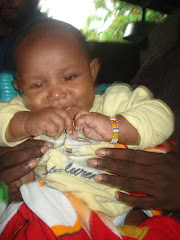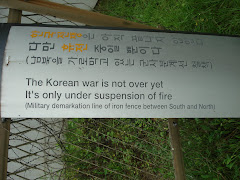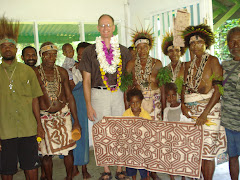
Peace is the message and working for peace is a preoccupation: peace in my heart and private life, peace in my community, working for peace in the world.
It is hard. After two weeks of anti-violence training in Solomon Islands, I got very angry with somebody and immediately began to think violent thoughts. However, we shook hands, the relationship wasn’t ruptured.
Not all conflicts are so easily solved. In the Solomons we heard stories about how the brothers worked to bring peace by befriending combatants and praying with them, reminding them of who they were as Christians. But the brothers wept as they told these stories. The violence is still taking a toll on them.
I left the Solomon Islands on August 30 and traveled to Sri Lanka. I visited Br. Lionel, SSF, who lives and works there; he spends most of his time and energy working for peace. He arranged a full schedule of visits up and down Sri Lanka to introduce me to the Church of Ceylon and to get an awareness of the situation of the country. He is very active promoting peace and reconciliation in collaboration with Roman Catholic Franciscans, with colleagues within the Anglican Church, and through interfaith relationships.
On the way back from picking me up at the airport, armed soldiers, demanding our documents and questioning us, stopped us twice. I learned too about the plans in parliament to change the constitution—effectively giving the president the right to run for office as often as he likes. Welcome to Sri Lanka! The national troops had put down a rebellion by the Tamil Tigers last year and the president is riding a crest of popularity. The armed soldiers and the constitutional reforms struck me as rather sinister.
Within 12 hours of my arrival, I gave a talk on Franciscan Spirituality and Reconciliation at the Diocesan Center next to the Cathedral.
At dinner at Bishop Duleep de Chickera’s house the next night, the conversation circled around the constitutional amendment. It is an alarming development, but one, they felt, which was about to slide in under the radar of most people. For the next few days we traveled in our

little three wheeled “tuk-tuk” among crowds of people protesting against the proposed changes, and others demonstrating for it. But the crowds were measured in hundreds, not tens of thousands. Ordinary Sri Lankans, I was told, simply feel grateful that the Tamil Tigers have been squashed and they are willing to give the President anything.
Br. Lionel and his friends at the Diocese of Colombo were able to get a special pass for me to travel through the recent war zone to the northern city of Jaffna. Most outsiders are forced to fly because the government doesn’t want outside scrutiny of this area. We drove north, from Colombo to Jaffna: past soldiers de-activating landmines, past checkpoints staffed by wary teenagers with huge guns, past newly erected army camps, still sporting temporary fencing made of palmetto leaves. We drove past small tents with a few people sitting in front of them: newly returned property owners, sitting where their houses used to be. The strafe bombing of the Singhalese destroyed the homes of the Tamil people, and now that the Tigers have been defeated the people are subject to an occupying army, and the challenge of rebuilding their homes and lives with meager assistance. At lunchtime during our trip, we stopped at an orphanage. The building had been bombed, yet already part of it is re-built, providing daycare facilities and a place for older children to study and take their exams. The simple food seemed unusually delicious sitting in the bombed out precincts of the old orphanage: warm hospitality in the midst of heartache.
How does one work for peace in a land torn by war? Frustrated local leaders in Jaffna spoke of the low amount of assistance the government is giving to people. We met with the Roman Catholic Bishop, a Muslim leader, Anglican clergy and an interfaith youth group. Yet it was incredibly heartening to listen to them speak of the need to make friends and develop relationships across religious and language barriers: “we are all people, we all live here.”
We visited schools, orphanages; youth groups: the first building blocks for rehabilitation, the first initiatives towards a rebuilt country and peace. Over, and over again we met people who threw protective arms around the youth of the country.

Christians, Buddhists, Hindus and Muslims were working to create a deeper sense of their common humanity. And we shared meals. Eating seemed to be a necessary aspect to most of the meetings: plates of spicy curry, juicy slices of fruit, bundles of noodles, heaps of rice. (Everybody eats with their hands; it took a bit of practice to eat and keep the juices in my hand, off my forearms and elbows.)
In the center of the Island we met people working on the tea plantations. Pushing high into the mountains, we visited the Tamil people impressed into service over a hundred years ago. They have been are kept in subservient peonage. Education is substandard. Life in the villages is isolated. Health care is hard to come by. To be a Tamil in Sri Lanka is to experience tremendous inequities and discrimination. It was a real privilege to meet the young clergy who are active in these communities. They are creating educational programs, challenging the people to create opportunities for themselves and speaking up to the larger church about the terrible difficulties the people face.

We drove south to Galle, past the still visible devastation of the 2004 Tsunami. How much can a people endure?
I was riveted by the sight of elephants, water buffalo, monkeys, people harvesting rice with hand sickles, women carrying heavy loads on their heads wearing beautiful saris, barechested men wearing sarongs, clambering on construction sites. We careened through the plaited traffic, making our way along narrow roads, overtaking oxcarts, lumbering overloaded busses, and were overtaken in turn by cars, vans and busses. We could have been killed many times over or run over hapless pedestrians. By some alchemy of spirit and skill, we maneuvered unharmed and not causing harm.
Everywhere we met people I spoke about the Franciscans. I wanted to support Br. Lionel’s work, and I wanted to encourage everyone with the story of our community working for peace and justice in many places around the globe.
Working for peace: I felt like I was doing little enough, yet the important first step became obvious: people need to be in relationship with each other. Links of friendship and solidarity can help in time of the erosion of civil liberties. The more I know about places like Sri Lanka, the greater the possibilities are for the future. It is easy to feel indifferent about statistics, but impossible to ignore the claim of friends.
Francis talked about the interconnectedness of all people and all creation. I feel my trip gave me not only insight, but also friendships. In some way, I am a Tamil tea picker, like JFK’s claim to be a Berliner.
What does this mean for me and for the world?












